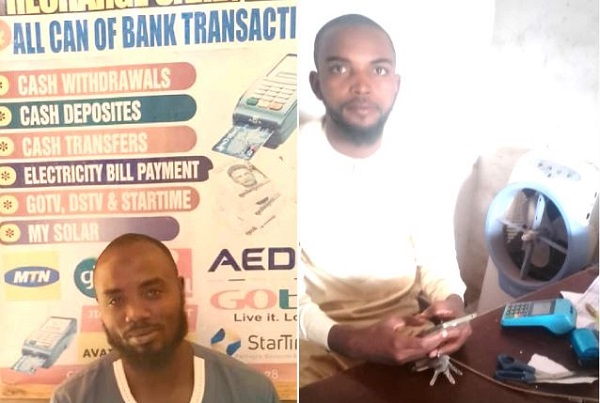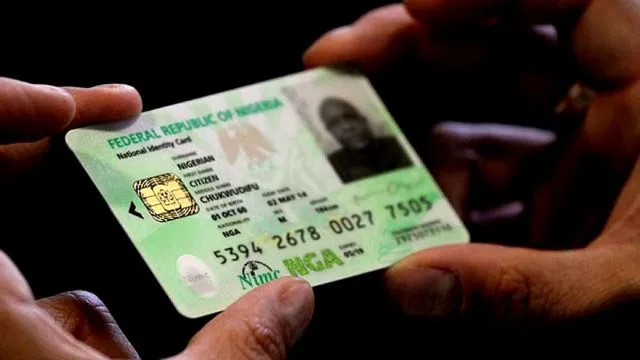In many rural areas across Nigeria, poor network connectivity and the lack of bank services are hindering efficient financial transactions. These have forced people to often depend on Point-of-Sale (POS) platforms to meet their financial needs. In this report, Justina Asishana explores the impact of such a payment system in some communities in Niger and Sokoto states.
Limited access to banks
In the Lavun Local Government Area of Niger State, there is only one bank, the United Bank for Africa (UBA), which is located at the local government headquarters, Kutigi.
The local government, which has about 13 communities, rely on POS services for their financial transactions.
They are able to send and receive money from different parts of the country, buy mobile data and transact business.
Travelling to the bank incurs significant transportation costs, making banking often unattractive.
Haruna Mohammed from Danchitagi community, however, said POS payment systems have come in handy.
“We appreciate the POS a lot because they help us. We are too far from the bank. If you want to go to the UBA, it is about 75 km and we pay about N3,000 to N4,000 for transportation.
“Without POS, we would not have been able to survive financially in this community. Our relatives outside the community can send us money and we receive it from the POS.”
In Sokoto State, several of the banks are in the centre of the town, which is between 50 to 75 kilometers from several communities in Sokoto’s main town.
Usman Alerio from Gagi community said when it comes to financial transactions, going to the POS is easier for them in the community than going to the banks. “It is close to us and it serves us. It is easier than going to the bank. It reduces the cost of transportation. It favours me. In this community, there are no banks nearby. Most of the banks are in the centre of the city, POS is better than going to the banks.”
72-year-old Yusuf Muhammad in Tamadi community in Sokoto State said his three children live outside Sokoto. Yet he said he had yet to step into banks since his account was opened, as he receives money his children sent to him through the POS.
“I don’t bother to go to the bank. As far as my ATM card is still valid and I know my PIN, I can withdraw my money from the POS people. It is easy and better for me.”
Denis Felix in Tamadi community said that services from the POS are fast and easy because there is no bank in his community: “To access a bank, you may have to transport yourself from Tamade to the town which will cost like N2,000. I prefer to go to the POS because it is preferable; I go to the bank once in a while.”
Impact on daily lives
POS services are integral to the economic activities of these communities. In areas like Rigi Sambo and Tudun Wada, they support business transactions and personal financial needs, including receiving money from relatives. Without POS service, many residents say they would face significant hardship.
POS helps in bridging the financial digital divide, as they connect remote communities to digital payment ecosystems, fostering financial inclusion and economic growth. POS technology streamlines transactions and boosts local enterprises.
POS is working to close the financial exclusion gap in communities that might have been left behind in the digital revolution.
Challenges with POS systems
Despite their reliance on POS machines, residents highlighted the need to improve network connectivity and reduce failed cash transactions and cash availability.
Residents and POS operators alike face challenges. Poor network connectivity often disrupts transactions, leaving customers with debits that do not reflect on one of the parties’ systems.
Abdullahi Musa from the Jima community said using POS becomes frustrating when transactions fail. “There are times when you want to withdraw money and your account will be debited, but on the POS, it will show as unsuccessful. That has happened to me. Sometimes they tell me to wait for 24 or 28 hours; that it would be reverted; but after waiting without it being reverted, I would have to go to the bank to file a complaint, so that it can be reimbursed.”
Adejo Joseph, a POS Operator in the Tudun Wada community in Sokoto noted that these days, there is cash scarcity and a lack of adequate network connectivity, which sometimes makes it difficult for him to conduct transactions.
“These days, even in banks, you cannot withdraw a certain amount; but from us, the withdrawal limit is addressed as the people can get more money from the POS. Another challenge we face includes declined transactions, where the customer is debited but we are not credited. Sometimes, it becomes very rowdy. Telling them that they will need to make a complaint at the bank is challenging. Then also network problems from network providers and from the banks are often frustrating.”
The Central Bank of Nigeria (CBN) in 2018 directed all banks to refund all failed electronic transactions within 24 hours, but several people who spoke to the reporter said their monies were not refunded until they went to the banks to make complaints.
Solutions
Ubanjin Ahmed, a financial expert in Minna, said POS has increased financial inclusion down to the last mile customer, regardless of geographical location; adding that the coming of POS to communities has helped in fostering digital financial inclusion and that the POS terminals enhance seamless cashless transactions, boosting digital public goods (DPG) adoption.
The Head of Digital Skills and Services in the Nigeria Communications Commission (NCC), Hauwa Wakili, while speaking to MFWA DPI Journalism Fellows during its training in Abuja, said that broadband penetration is still at, as of October 2024, 42 per cent, saying that the NCC is working to achieve a national broadband plan of 70 per cent by 2025.
She said sometimes lack of connectivity is caused by vandalisation, which is a big menace in the telecom sector.
“Sometimes, when we experience this lack of connectivity, quite often, it is as a result of vandalisation activities. The vandalisation is not only to fibre cuts, but also to base stations, and to towers. That is how bad it is.
“It is so rampant. We experience about 24,000 fibre cuts in one year, which makes it 65 fibre cuts in a day. One fibre cut in a state could affect another or even regions. It could have a ripple effect in regions. And so, you have that downtime.
She stated that the fibre cuts also affect the quality of service, lamenting that it has been increasing over the years and it is a very big challenge for the telecoms industry and consumers who use telecoms services, as several of them would not be able to transfer or receive money or engage in any financial transactions when this giver cuts occur.
This report is produced under the DPI Africa Journalism Fellowship Programme of the Media Foundation for West Africa and Co-Develop.





